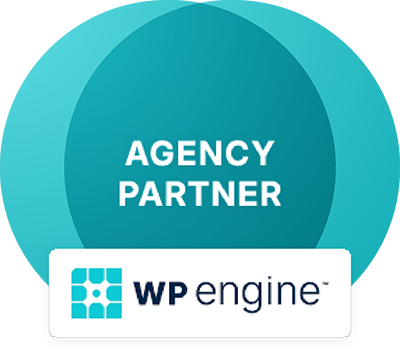




Off-Page SEO Checklist: Boost Your Rankings with These Proven Strategies
In the world of search engine optimization (SEO), off-page SEO refers to the actions taken outside your website that affect your search engine rankings. While on-page SEO focuses on optimizing the content, structure, and technical aspects of your site, off-page SEO involves strategies to boost your website’s authority, credibility, and visibility across the web.
In this post, we’ll cover a complete off-page SEO checklist that includes the most effective strategies you can use to increase your rankings and drive organic traffic to your website.
What is Off-Page SEO?
Off-page SEO refers to all the activities that you and others do outside of your website to improve your search engine rankings. It primarily focuses on building backlinks, increasing social media engagement, and gaining brand mentions to enhance the credibility and authority of your website.
Off-page SEO signals help search engines understand how authoritative, relevant, and trusted your site is compared to others. The more high-quality links and mentions your site has, the better it will perform in search engine results pages (SERPs).
The Ultimate Off-Page SEO Checklist
Here’s a detailed off-page SEO checklist you can follow to build your website’s authority and improve its rankings on search engines like Google.
1. Build High-Quality Backlinks
Backlinks, also known as inbound links, are one of the most important off-page SEO factors. Search engines see backlinks as votes of confidence, which signal that your content is trustworthy and authoritative.
How to Build High-Quality Backlinks:
- Guest Blogging: Write valuable content for other reputable websites in your industry and include a backlink to your site.
- Resource Pages: Reach out to websites that feature resource pages or guides in your niche and ask them to include your content.
- Broken Link Building: Find broken links on websites in your industry and suggest your content as a replacement.
- Skyscraper Technique: Identify popular content in your niche and create a better version, then reach out to sites linking to the original content and ask them to link to yours instead.
Focus on building backlinks from high-authority websites, as these links carry more SEO value. Tools like Ahrefs, Moz, or SEMrush can help you identify and track high-quality backlinks.
2. Social Media Engagement
While social media links are typically “no-follow” (meaning they don’t directly pass SEO value), social media platforms can still help drive traffic, build your brand, and increase awareness. Engaging with your audience on social media can indirectly improve your off-page SEO by increasing mentions and traffic to your site.
How to Use Social Media for Off-Page SEO:
- Share Your Content: Regularly share blog posts, guides, and other valuable content on your social media platforms to increase visibility.
- Encourage Sharing: Add social sharing buttons to your website to make it easy for visitors to share your content on their social profiles.
- Engage with Influencers: Collaborate with influencers or industry leaders to amplify your content and reach a wider audience.
- Build a Community: Actively engage with your followers by responding to comments and messages. A loyal and engaged social media community can drive more traffic to your website.
3. Brand Mentions and Citations
Brand mentions, also known as unlinked mentions, occur when your business or website is mentioned online without a direct link back to your site. While they don’t carry the same weight as backlinks, brand mentions are still a powerful off-page SEO signal.
How to Get Brand Mentions:
- Monitor Your Brand: Use tools like Google Alerts or Mention to track when your brand is mentioned online.
- Reach Out for Links: When you spot a brand mention that doesn’t include a link, politely reach out to the site owner and ask them to convert the mention into a backlink.
- Guest Interviews: Participate in industry interviews or podcasts where your brand will be mentioned and discussed.
Citations are another key factor in local SEO, where your business’s name, address, and phone number (NAP) are listed on directories and review sites. Ensure that your NAP information is consistent across all listings to boost your local search rankings.
4. Engage in Forums and Communities
Active participation in forums and online communities related to your industry can help build your website’s authority and drive traffic. Engaging in forums is a great way to build relationships, answer questions, and establish yourself as an expert in your field.
How to Use Forums for Off-Page SEO:
- Find Relevant Forums: Look for industry-specific forums where your target audience gathers. Examples include Reddit, Quora, and niche-specific communities.
- Provide Value: Offer helpful and relevant answers to users’ questions. Avoid being overly promotional—focus on providing value and naturally mentioning your site when it’s appropriate.
- Include a Link in Your Profile: Many forums allow you to add a link to your profile or signature, which can drive traffic back to your site.
Engaging in forums may not directly contribute to SEO, but it can help establish authority, build relationships, and drive referral traffic to your website.
5. Guest Blogging
Guest blogging is an effective off-page SEO strategy that allows you to contribute content to other websites in exchange for a backlink. It’s a win-win strategy—hosting websites get valuable content, while you gain exposure and a high-quality backlink.
How to Do Guest Blogging Right:
- Identify Reputable Sites: Reach out to websites in your niche that accept guest posts. Ensure these sites have a good domain authority and align with your industry.
- Pitch Relevant Topics: When pitching guest posts, propose topics that are relevant to the host site’s audience and align with your expertise.
- Follow the Guidelines: Many websites have specific guidelines for guest posts. Follow them closely to increase your chances of getting published.
Quality matters more than quantity, so focus on contributing to authoritative websites rather than spamming low-quality sites with guest posts.
6. Influencer Marketing
Influencer marketing is another valuable off-page SEO technique that involves collaborating with influencers to promote your brand or content. When influencers share your content or mention your brand, it can result in increased traffic, brand awareness, and even backlinks.
How to Use Influencer Marketing for SEO:
- Identify Relevant Influencers: Look for influencers in your niche who have a strong following and high engagement rates.
- Build Relationships: Start by engaging with influencers on social media, sharing their content, and building a relationship before pitching any collaboration.
- Create Shareable Content: Develop content that influencers will want to share, such as how-to guides, infographics, or industry reports.
Influencers can amplify your content and expose your website to a broader audience, indirectly boosting your off-page SEO efforts.
7. Directory Submissions
Submitting your website to high-quality directories is an older but still relevant off-page SEO tactic. Directory submissions can help your website gain visibility and backlinks, especially if the directory is industry-specific or local.
Tips for Directory Submissions:
- Choose High-Authority Directories: Focus on reputable directories like Yelp, Angie’s List, Yellow Pages, and industry-specific directories.
- Submit to Local Directories: If you have a local business, submit your site to local directories like Google My Business or Bing Places for Business.
- Ensure NAP Consistency: For local SEO, make sure your name, address, and phone number are consistent across all listings.
8. Podcast Guesting
Podcasts are rapidly growing in popularity, and being a guest on a podcast can expose your brand to a new audience. Podcast appearances often result in backlinks, as many podcast hosts link to the guest’s website or content.
How to Leverage Podcast Guesting for SEO:
- Research Industry Podcasts: Identify podcasts that focus on topics relevant to your industry.
- Pitch Podcast Hosts: Send pitches to podcast hosts explaining why you’d make a great guest and what value you can provide to their audience.
- Promote Your Website: During the podcast, mention your website or a specific piece of content, and encourage listeners to check it out.
Conclusion
Off-page SEO is a critical component of any successful SEO strategy. By building high-quality backlinks, engaging on social media, earning brand mentions, and participating in online communities, you can improve your website’s authority and visibility in search engine results.
Following this off-page SEO checklist will help you create a strong foundation for boosting your rankings and driving organic traffic to your website. Remember that off-page SEO is a long-term effort, so be patient, focus on quality, and stay consistent with your efforts.
At Masthead Technology, we offer expert off-page SEO services to help businesses enhance their online presence and grow their traffic. Contact us today to learn more about how we can support your SEO efforts.
FAQs
1. What is off-page SEO?
Off-page SEO refers to actions taken outside your website that influence your search engine rankings. It includes link-building, social media marketing, and influencer outreach.
2. Why is off-page SEO important?
Off-page SEO helps improve your website’s authority, relevance, and trustworthiness, which are key factors in how search engines rank websites.
3. How do backlinks affect SEO?
Backlinks from authoritative websites signal to search engines that your content is valuable and trustworthy, which can improve your rankings.
4. Do social media signals impact SEO?
While social media signals don’t directly affect rankings, increased visibility and traffic from social media can indirectly boost your SEO efforts.
5. How long does it take to see results from off-page SEO?
Off-page SEO is a long-term strategy. It can take several months to see significant results, depending on your efforts and the competitiveness of your industry.



